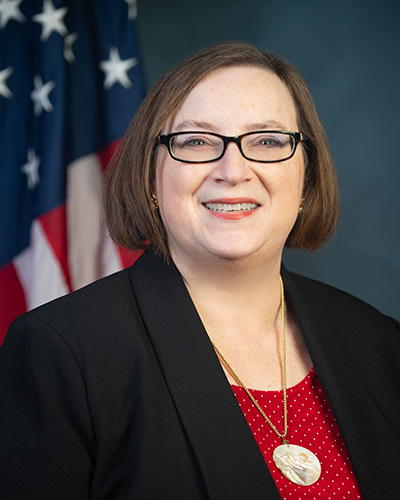The reverse mortgage portion of the Federal Housing Administration’s (FHA)’s Mutual Mortgage Insurance Fund (MMIF) has reached a positive capital ratio for the third time since 2015 on the overall government-backed portfolio.
This is according to an annual actuarial review of the fund’s finances and the FHA’s Annual Report to Congress, both released Wednesday morning. The book’s value sits at approximately $11 billion compared with the $15.1 billion figure recorded in 2022.
The decline in the capital reserve was largely attributed to weaker home price appreciation in 2023 that was telegraphed in last year’s report.
Still, the health of the Home Equity Conversion Mortgage (HECM) book of business remains strong from FHA’s perspective, as its economic value has increased while the portfolio overall has recovered from issues that previously put it on shaky financial footing.
HECM capital reserve: down slightly, still positive
The capital ratio for the HECM portfolio comprises roughly 5% of the total MMI Fund, and fell to 16.72% in 2023, down from 22.77% in 2022.
“As expected, the financial performance of the HECM portfolio has declined somewhat during this fiscal year, mostly as the result of lower house price appreciation forecasts,” according to FHA’s Annual Report. “However, the HECM stand-alone capital ratio remains positive for the third year in a row.”
The HECM portfolio is “significantly more sensitive” to even small changes in house price forecasts, but the portfolio’s small size when compared to the total MMI Fund helps limit the impacts these fluctuations might otherwise cause.
Fiscal year 2023 volume for the HECM program stands at 32,963, totaling $16 billion in maximum claim amount (MCA), according to the Annual Report.
While the mortgage market broadly experienced a steep drop in originations, data as recent as the end of September 2023 indicates that “FHA’s purchase transaction loan volume remained strong, highlighting FHA’s continued role in providing access to financing for first-time and other homebuyers through all economic cycles,” the report said.
HECM endorsements dropped roughly 50% in 2023 compared to data from the prior year.
The HECM cash flow net present value in 2023, which is a measure reported to Congress by the U.S. Department of Housing and Urban Development (HUD), was estimated to be $6.742 billion, according to an actuarial review conducted by IT Data Consulting, LLC.
The review also found that “the estimated economic net worth of the HECM MMI is positive $15.368 billion,” an increase over last year.
The report also cited different HECM policy moves made in 2023, including a streamlining of the HECM claims submission process and new procedures in addressing HECM servicer default, designed to alleviate liquidity pressures on the reverse mortgage industry.
“FHA issued policies designed to support HECM market stability and consumer and market confidence in the HECM program,” the report said. “These changes mitigate market-based risk to MMI Fund while also supporting the borrowers served by the HECM program.”
Average MCA per-HECM loan also declined slightly in 2023 to $490,396 from last year’s record high of $498,210.
“Rising average Maximum Claim Amounts coincide with higher appraised values on homes occupied by HECM borrowers,” the report said.
HUD and FHA response
In an exclusive statement to RMD, HUD Secretary Marcia Fudge said that the report illustrates good stewardship of the MMI Fund under current leadership.
“Today’s report shows that thoughtful and responsive policies can expand homeownership and address long-standing inequities while maintaining a well-performing Mutual Mortgage Insurance Fund,” Fudge said. “In 2023, we helped thousands of Americans become homebuyers, promoting equity and fairness while bolstering our entire economy.”
In regards to HECM specifically, FHA Commissioner Julia Gordon said that the program’s book of business performance is in line with expectations set in last year’s report.

“The fact is that the HECM book is uniquely sensitive to home price projections, not just the actual numbers that we’ve had in the last few years,” Gordon said in an exclusive interview with RMD.
“So remember, when we do this exercise, we’re looking across the whole life of the loan, so projections have clearly slowed from previous years.”
Gordon explained that as important as the numbers featured in the report are, they are only one piece of the broader puzzle.
“Looking at one number like this while we put out this report — because of course we are obligated by Congress to disclose what the ratio is and to provide this report — one number doesn’t tell you a whole story,” she said.
“Sure, it is a directional number. It is good that it is still a strong number and still continues to support the MMI fund as a whole. But the important story is in the words we’ve written in the Annual Report.”
Industry response
The National Reverse Mortgage Lenders Association (NRMLA) commended the performance of the HECM book according to Steve Irwin, president of NRMLA.

“NRMLA is pleased to see that the performance of the HECM program continues its strong performance within the MMI Fund,” he said. “Our leadership recognizes the program’s sensitivity to Home Price Appreciation assumptions, and the importance of recent policy changes to help mitigate liquidity risk in our marketplace.”
Since the industry continues to face challenges, Irwin said that NRMLA stands at the ready to continue working with the government’s housing leaders on HECM-related issues.
“We look forward to continuing our dialogue with HUD to find ways to further mitigate these risks so that HECMs remain a long term option for senior homeowners who wish to access accumulated home equity to bolster their retirement financing,” Irwin said.
Editor’s note: This story has been updated with perspective from NRMLA, and more details from the Actuarial Report.






Comments
-
Pingback: Review of MMI Fund’s reverse mortgage book sheds light on evolving HECM - HousingWire
Load More Comments